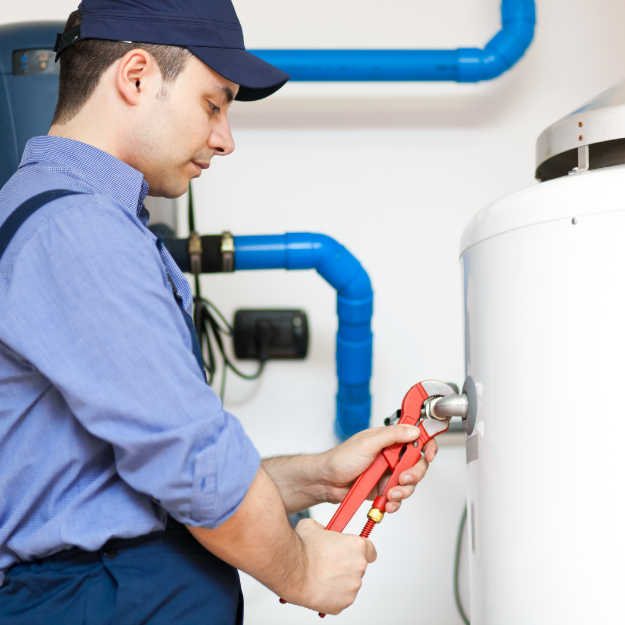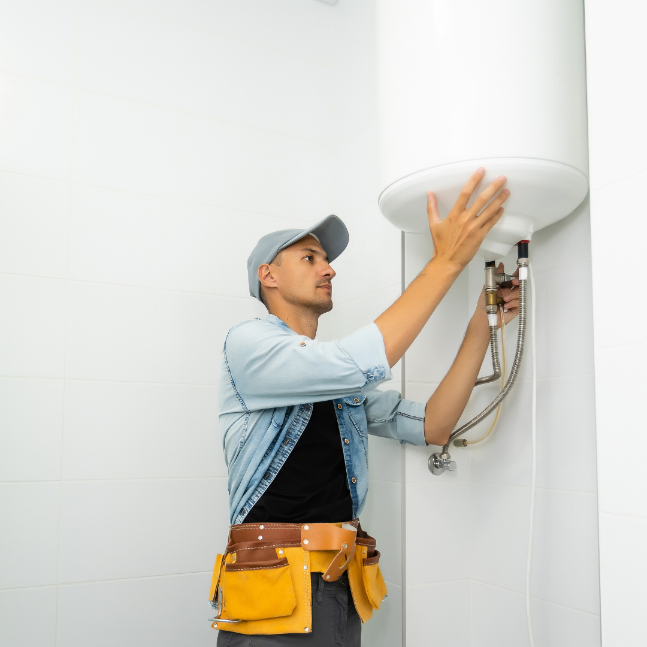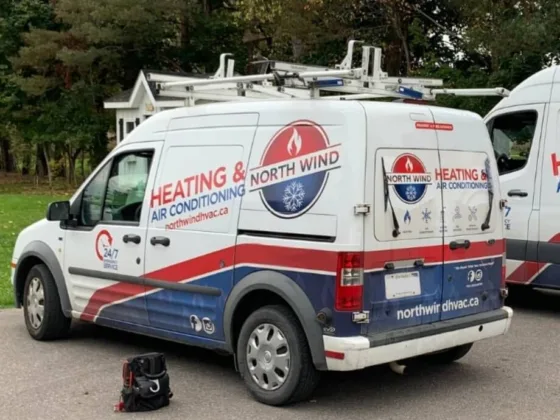The water heater is essential for hot water for everyday tasks like showering, dishwashing, and laundry.
As a hardworking appliance, it’s bound to face wear and tear over time.
Recognizing the signs that your water heater needs attention is essential to prevent potential disasters and ensure a continuous hot water supply.

This comprehensive guide will explore the telltale signs indicating your water heater requires either repair or replacement.
Section 1: Age of the Water Heater :
The age of your water heater is a vital factor in determining whether it’s time for a repair or replacement.
Typically, conventional water heaters have an average lifespan of approximately 8 to 12 years, while tankless water heaters can endure up to 20 years.
If your water heater is nearing or surpassing its expected lifespan, it’s prudent to consider replacement, even if it seems to function adequately.
Section 2: Declining Hot Water Supply
One of the first signs of water heater trouble is a decline in the availability of hot water.
f you notice that your showers are becoming shorter due to the water turning cold quickly or that your hot water runs out before finishing your usual tasks, it could indicate an issue with the heating element or a buildup of sediment in the tank.
Section 3: Discolored or Rusty Water
When you turn on your hot water faucet and notice discolored or rusty water, it indicates something is amiss with your water heater.
Read Also :
The presence of rust or sediment in hot water can result from a corroded tank, which not only affects water quality but also compromises the appliance’s longevity.
Section 4: Strange Noises
Unusual sounds coming from your water heater can be cause for concern.
Frequently, loud rumbling, popping, or banging sounds are associated with sediment accumulation at the tank’s base. As the water heats up, the sediment hardens and causes these noises.
Ignoring these sounds can lead to decreased efficiency and potential damage to the tank.
Section 5: Water Leakage
Water puddles or signs of leakage around the water heater are clear indicators that require immediate attention.
Leaks can arise due to various factors, such as a malfunctioning temperature and pressure relief valve, improperly secured connections, or a fracture in the tank.
Addressing leaks promptly can prevent extensive water damage to your property.
Section 6: Inconsistent Water Temperatures
If your water heater has difficulty maintaining a steady water temperature, it could indicate a faulty thermostat or a deteriorating heating element.
Fluctuating water temperatures can disturb your regular activities and greatly influence your comfort.
Section 7: Increased Energy Bills
A sudden spike in your energy bills without any other notable changes in your household’s energy usage may be linked to a water heater issue.
An inefficient water heater or past its prime consumes increased energy to heat water, leading to elevated utility expenses.
Replacing an older unit with a more energy-efficient model can result in substantial long-term savings.
Section 8: Repetitive Repairs
Frequent and costly repairs on your water heater can add up quickly and become more expensive than investing in a new unit.
If you frequently require repair services, it might prove more economical to consider a complete replacement of the water heater.
Section 9: Corrosion and Deterioration
Inspect the exterior of your water heater regularly for signs of corrosion or deterioration.
If you notice significant rust or decay, it could indicate internal damage to the tank or other components, necessitating immediate attention.
Section 10: Foul Odors
Foul-smelling water from your water heater can result from bacterial growth within the tank. The presence of bacteria can not only cause unpleasant odors but also affect water quality and potentially pose health risks.
Section 11: Fluctuating Water Pressure
Inconsistent water pressure can be another indication of water heater problems.
Fluctuations in water pressure, particularly when using hot water, may be a sign of a failing pressure relief valve or a buildup of sediment in the tank.
Maintaining adequate water pressure is vital for a smooth and efficient hot water supply, and dealing with this matter promptly can avert potential complications.
Section 12: Pilot Light Issues (For Gas Water Heaters)
If you have a gas water heater, the pilot light should remain consistently lit to ensure the appliance’s proper functioning.
If you notice that the pilot light frequently goes out or struggles to stay lit, it may point to problems with the gas supply, thermocouple, or pilot assembly.
It is advisable to have a skilled technician examine and address any problems concerning the pilot light.
Section 13: Excessive Water Heater Vibrations
Unusual vibrations and shaking from the water heater during operation can be alarming.
Excessive vibrations may indicate loose or damaged internal components, unbalanced heating elements, or a malfunctioning recirculation pump. Neglecting these vibrations can lead to further damage and costly repairs.
Conclusion: Your water heater is a workhorse that provides hot water for various daily activities, and recognizing signs of trouble is crucial for maintaining its efficiency and functionality.
In this comprehensive guide, we explored the common warning signs that indicate your water heater needs attention, such as declining hot water supply, discolored or rusty water, strange noises, leaks, inconsistent water temperatures, increased energy bills, repetitive repairs, corrosion, foul odors, fluctuating water pressure, pilot light issues (for gas water heaters), and excessive vibrations.
Upon noticing these indicators, taking immediate action is crucial to prevent additional damage and inconvenience.
While minor issues may be resolved with repairs or maintenance, severe problems, and an aging water heater may warrant replacement.
Engaging the services of a skilled plumber for routine maintenance can extend your water heater’s longevity and optimize its performance.
When it comes to addressing water heater issues, seeking the expertise of a qualified plumber is advisable.
Seeking assistance from a qualified expert can aid in pinpointing the underlying issue and determining the necessary repairs or replacement measures.
By taking proactive steps and promptly addressing water heater concerns, you can enjoy a continuous hot water supply, increase energy efficiency, and avoid potential water damage to your property.
Remember, a well-maintained water heater is an investment that contributes to your home’s comfort and functionality for years to come.










